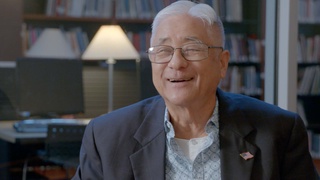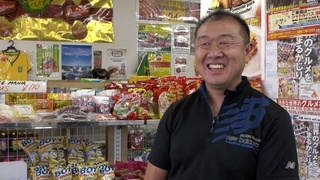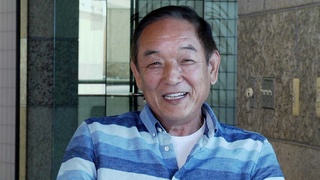Interviews
Company in Tokyo burned down (Japanese)
(Japanese) Even if I want to go home, I can’t so it’s useless. There’s no use thinking about it.
I*: During the war, if Pearl Harbor hadn’t been attacked, would you be in Japan now?
Yeah, of course. I was going to go back to Japan. I had started a company in Tokyo.
I: What happened to that company? What happened to that company? That company in Tokyo?
It burned down. Burned down. Even though I had built a company it burned up.
* "I" indicates an interviewer (Eriko Yamamoto).
Date: October 14 & 17, 2004
Location: California, US
Interviewer: Eriko Yamamoto
Contributed by: Watase Media Arts Center, Japanese American National Museum.
Explore More Videos

The riot in Manzanar
(b. 1921) Nisei veteran who served in the occupation of Japan

After being discharged and returning to the nursery business
(b. 1921) Nisei veteran who served in the occupation of Japan

The Dopey bank that survived the war
(b. 1934) Award-winning Disney animation artist who was incarcerated at Topaz during WWII

Business in Missouri (Japanese)
(b. 1936) Shin-issei welding business owner

My daughter couldn’t fit in Japan, so I decided to go back to America (Japanese)
(b. 1936) Shin-issei welding business owner

Transition from a factory worker to starting his own business (Portuguese)
(b. 1962) Japanese Brazilian owner of a Brazilian products store in Japan.

Evacuated to the Jungle
(b. 1938) Philipines-born hikiagesha who later migrated to the United States.

Captured by Guerillas after bombing of Pearl Harbor
(b. 1938) Philipines-born hikiagesha who later migrated to the United States.

Grandfather picked up by US Army
(b. 1952) Former banking executive, born in Hawaii

Tough life at boarding house (Japanese)
Shin Issei – owner of izakaya (Japanese-style tavern) and kappo (small Japanese diner) restaurant, Honda-Ya


Father's business partner operated their farming business during WWII
(b. 1935) Sansei businessman.

Father was convinced the constitution would protect him
(b. 1935) Sansei businessman.


General reasons why people left Japan for Peru
Okinawan American whose parents are from Peru.
